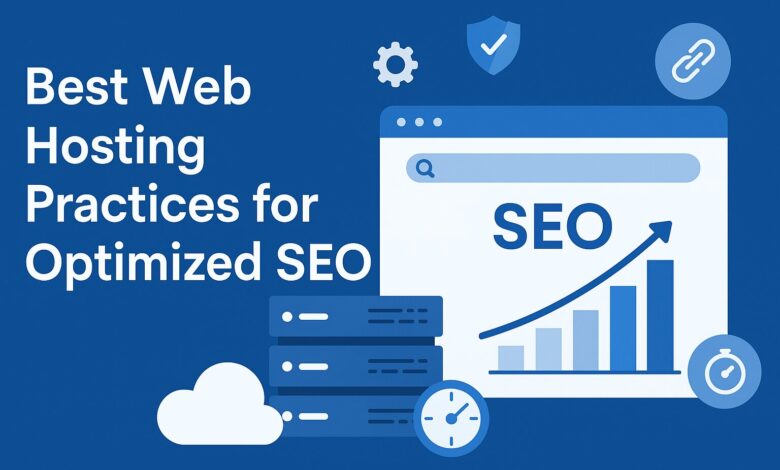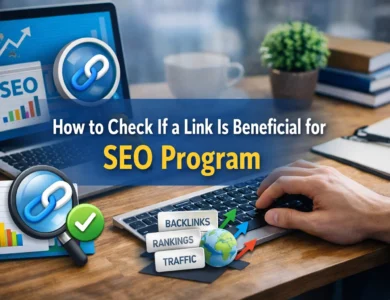
Most likely, you’ve created high-quality content, built relevant backlinks, and ensured that your website’s content is well-optimized. That’s why it remains a puzzle why, up until now, despite all those efforts, your website isn’t ranking.
Like many, it’s easy to think that the secret to SEO is keywords, backlinks, and optimized content. But what most people fail to recognize is an aspect that is often left unprioritized. One that is quite close to home: web hosting.
Have you ever considered evaluating your hosting provider’s performance? What if all this time it has been hindering your ranking? When your web hosting is slow, unreliable, and insecure, it actually undermines all your SEO efforts. Months of work go down the drain.
So, how does web hosting impact your search engine performance? How does it affect the business? Why is it important to be vigilant in choosing the right web hosting provider? Keep reading to learn more.
How Does Web Hosting Affect Your SEO?
While it may not be a well-known component to SEO, web hosting actually helps your website get favored by Google. For one, Google evaluates the speed of your website and uses it as one of the metrics for ranking. Obviously, when the performance is sluggish, it leads to high bounce rates. If you were the customer, would you want to stay on a page that takes forever to load? No, right?

That’s why web hosting is especially important for small businesses – it lays the foundation for a professional and trustworthy online presence. As a small business owner, you need a hosting provider that offers reliability, security, and scalability without overwhelming complexity. Many web hosting services now offer plans designed specifically for small businesses, with features like fast website performance, built-in cybersecurity tools, and easy-to-use management dashboards. To find the right fit for your business, check out Cybernews’ list of web hosting for small business for 2025.
Now, aside from page speed, there are other key aspects that highlight the role of web hosting in SEO. This includes:
- Mobile Responsiveness. Okay, so you’ve been allocating much of your time, effort, and resources to perfecting your business website. But have you checked if it functions well on mobile devices? Did you know that Google has long been implementing mobile-first indexing? This means it prioritizes the content on the mobile version of your website rather than its desktop counterpart when indexing.
- Uptime and Reliability. Another factor that can significantly affect your SEO efforts is downtime. When your website is not available for users, it also affects the crawlers that scan the content of your page and index it for ranking purposes. Failure to do so can lead to lower search ranking—or worse, not ranking at all. Therefore, aside from looking at the speed and mobile responsiveness of the hosting provider, also check its uptime monitoring. Make sure that it guarantees 99.99% or higher.
- Cybersecurity. With the growing cases of data breaches and cyberattacks, one of the most important things that you have to do is to secure your business website using HTTPS. Not only does this protect your customer and business data, but this also contributes to higher search ranks, as SSL certificates are recognized as one of the factors for ranking.
SEO Web Hosting: Tips for Businesses
Now it’s clearer how deeply intertwined the concepts of web hosting and SEO are. Putting up your business on the internet does not simply mean publishing it online. You also have to ensure that it’s functioning really well and it’s visible to people, most especially your target market.

To do this, here are some of the best web hosting practices that you can implement for optimized SEO:
-
Check SEO Features.
Aside from looking into the speed, mobile responsiveness, and uptime monitoring of the web hosting service provider, also take note of the SEO features that come with the deal. The best web hosting services, such as Bluehost, already come with the Yoast SEO premium feature, which offers:
- keyword optimization
- smart internal linking suggestions
- content insights
- broken link checker
- readability check
-
Choose an SEO-Friendly Domain.
Some of the best web hosting service providers already integrate domain registration into their hosting plans. Upon payment, the domain name will be registered under your name—and if you don’t choose well, you might end up being stuck with something that does not align with your brand. Note that your domain name helps customers identify your website. Therefore, you have to reflect and choose the name really well. Some of the important things to take note of when choosing your domain name:
- Choose a popular extension, such as “.com,” “.org,” “.net,” “.shop,” or “.biz.”
- Verify the availability of the domain name or the history of what it was previously linked with.
- Keep it relevant, simple, easy to remember, and aligned with the niche of your business.
- If possible, you can include keywords in your domain name.
- Consider registering similar domains to protect your brand from copycats that may use your brand name for malicious purposes.
-
Prioritize Cybersecurity.
E-commerce websites have become a particular target for many cybercriminals. With all the sensitive information they hold, they’re like a pot of gold for those who have ill intentions toward your brand or simply want to capitalize on this data. Google usually imposes penalties on websites that attempt to manipulate rankings, have been exposed to malware, and may ultimately lose their rankings.
To avoid this from happening to your business website, always make sure to:
- Choose web hosting that already offers free SSL certificates
- Install security plugins
- Use strong passwords, MFAs, firewalls, and antivirus software
- Regularly back up your website
- Limit login attempts
- Choose a reliable web host
Optimizing Your Business Website: In a Nutshell
A good product deserves a recommendation. But a great business deserves the world’s attention. This 2025, it’s about time that you scale and reach more potential customers by choosing the best web hosting that can cater to your business needs. One that can strengthen your SEO efforts, help secure your data, provide an enhanced experience to your customers, and improve your ranking on search engines.
In this highly competitive landscape, what has been your best move to reach more customers?








It’s true that choosing the right web hosting can make or break your SEO efforts. Speed, uptime, and server location can play a big role in rankings. Thanks for sharing!